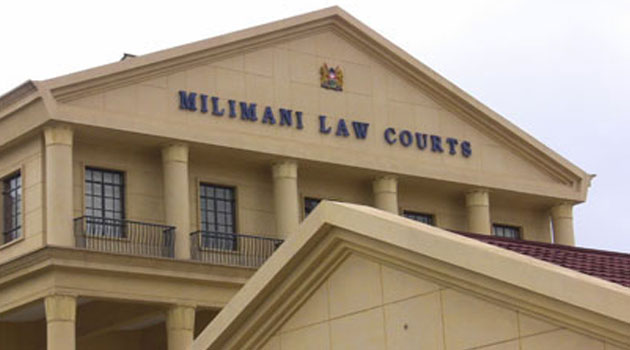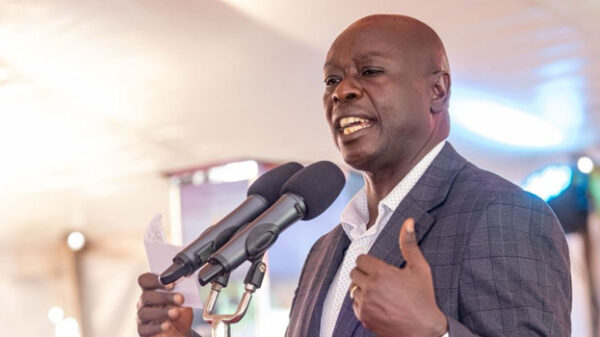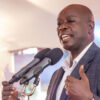By Dr.David Matsanga in London
I write as a Pan Africanist, an investigative Journalist, and an international activist. A Conflict Resolution expert who looks after the interests of the public. I am a member of the Commonwealth Journalist Association. Therefore, what happens in Kenya affects me.
The Kenyan case is a case that has more politics than legality. It is more focused on revenge than restoration of what might have gone wrong in Kenya. Therefore, it must be tackled and exposed to millions of international avenues for scrutiny.
In view of the High court skewed decision which declared the BBI process null and void, I find it imperative that I make a few observations as an international scholar who follows events in Africa.
I might not be a lawyer but as a political scientist who understands law and legal frameworks, I have an obligation to comment on this case.
I will endeavor to offer my humble opinion on a number of declarations made by the 5 Judges of the constitutional bench of Kenya High Court.
FACT 1: The declaration that the President can be sued in his personal capacity in civil proceedings. This is one declaration that clearly demonstrates the malicious motive of the bench. These are political utterances as opposed to legal standing.
It clearly contradicts provisions of Article 143 which shields the President from both criminal and civil proceedings while in office.
Article 143(2) states…Civil proceedings shall not be instituted in any court against the PRESIDENT or the PERSON performing the functions of that office during their tenure of office in respect to anything DONE OR NOT DONE in the EXERCISE of THEIR POWERS UNDER THIS Constitution.
The above provision is as clear as clarity can be. From whence did the judges get the idea that civil proceedings can be brought against a sitting Head of State?
How did the judges arrive at suing the President in his individual/personal capacity when the Constitution clearly talks about President or the person occupying the office of President? If the president has individual capacity under which he can be sued as an ordinary citizen. Can he also ignite popular initiative to amend the constitution under that ordinary citizen capacity?
In my considered view this declaration cannot stand the test of sober judicial scrutiny in an unbiased court. It looks like the court stretched its powers to the extent of actually amending Article 143(2)…actually not amending but the High Court actually expunged the said Article from the constitution.
FACT 2: The above finding cannot be separated from the declaration that President Uhuru Kenyatta is in breach of Chapter six of the constitution. One of the principles of Natural Justice states that No person should be condemned unheard. How the court could arrived at such a far reaching finding without giving the President a chance to be heard goes beyond the ordinary judicial activism.
An in-depth reading of the declaration that the President can be sued and that he’s guilty of contravening the constitution tells you that the judges were calling for President Kenyatta’s ouster, either through impeachment or any other means necessary. The Judges performed a coup against the state and should be sued by Kenyans who want peace.
FACT 3: That the requirements of amending what the court referred to or rather declared as eternity clauses under doctrine of Basic Structure were not met. Curiously, the judges cherry picked certain Articles and declared them eternity clauses which to my knowledge as a scholar was a way of arriving at a certain predetermined outcome. This was not legal but political.
The doctrine of Basic Structure of a Constitution means that there are certain features of a Constitution which cannot be erased or amended by Parliament without involving the people. The doctrine holds that basic structure clauses form the foundation and contain the unique historical and philosophical foundations of the constitution. Amending them therefore, is tantamount to overhaul of the constitutional order.
The basic structure doctrine has been used in Malaysia, Pakistan, India and a few other jurisdictions to check parliament against overstepping its legislative mandate.
In Kasavananda V. State of Kerala, the Supreme Court held that the constitution of India basic features cannot be altered by Parliament through amendment. Key among the basic features are fundamental rights and freedoms.
My understanding is that the Indian constitution and situation fundamentally differs with that of Kenya in very pronounced aspects.
One, the Kenyan amendments are not being done by Parliament…Kenyans have been involved at every step of the way and will eventually have a final say in the referendum! Two, the Kenyan constitution has self-protecting Articles 255, 256 and 257 which decrees the manner in which it can be amended.
Article 256 stipulates how the constitution should be amended through parliamentary initiative, hence unlike in the Kasavananda case, the BBI amendments are being done through popular initiative as provided for under Article 257.
It is important to note that Article 255 list the grounds under which the 2010 constitution can be amended through popular initiative. Judicial deep-sea fishing aside, everything else not listed can be amended through the parliamentary route. The clauses which require referendum under Article 255 are.
The supremacy of the constitution, the territory of Kenya, sovereignty of the people, the national values and principles of governance mentioned in Article10(2) (a) to (d), the Bill of Rights, the term of office of the President, the independence of the judiciary and the commissions and independent offices to which chapter fifteen applies, the functions of Parliament, the objects, principles and structure of devolved government; or the provisions of Chapter sixteen are all available for people to read.
How the judges fished other provisions and declared them as part of basic structure is a question of judicial conjecture. I think the Supreme Court or Appeal Court in Kenya should look at this and give an advisory opinion to shed light on this anarchist interpretational darkness into which the High Court has carelessly thrown the country into a mess.
It is clear to me that these are the protected basic structure clauses of the 2010 constitution and therefore, require a referendum as was to be before the High Court judicial ambush on the people of Kenya.
Article 257 gives breathes oxygen to Article 1 which declares sovereignty of the people. 257 gives people a chance to exercise their sovereignty directly in constitutional amendment matters through a referendum.
One can boldly conclude that the High Court bench was highly prejudiced and preposterous in stopping the people of Kenya from exercising the sovereignty under Article 257 as declared by Article1. The High Court went to a political wonder-world of Ghost working.
FACT 4: The declaration that the IEBC lacks quorum. Article 250 of the constitution is explicit that a minimum of 3 commissioners is sufficient quorum for constitutional commissions.
The question of quorum of 3 was further canvassed and settled by Justice Mativo in petition No. 212 of 2018. Why the judges of the High Court would impose extra constitutional requirements against black and white provisions is a study in interpretational absurdity.
It goes againstthe provisions of Article2 (4)…any law, including customary law, that is inconsistent with the constitution is void to the extent of inconsistency…..judges cannot purport to exercise any power outside the confines of the constitution.
FACT 5: The principle of public participation as required by Articles 10, 118, 124, 201, 221 and 222 have been fully met, what was remaining was only the referendum where the people of Kenya would stamp their authority through the referendum ballot. It’s important to note that county assemblies and both houses of parliament were merely part of the process.
The people of Kenya have been the drivers of the process from the very beginning. From the collection of views from the public as main stakeholders, conducting civic education through adverts and other, County hall meetings, sensitization rallies, collection of four million signatures…the people have owned every stage of the process.
Therefore, the court finding that there was no sufficient public participation is neither here nor there. It lacks logical, legal or factual legs to stand on. Recommendation for a constituent assembly is tantamount to establishing a third amendment route unknown to the constitution.
FACT 6: The doctrine of coloured legislation. This doctrine is based on the maxim that what cannot be done directly cannot be done indirectly. As regards parliamentary legislative competence, the doctrine is such that parliament cannot make laws or make amendments fraudulently outside its purview.
The legislature cannot do indirectly what it cannot do directly. A law is regarded as colourable when Parliament, having no powers to pass such a law frames the legislation camouflaging the same as if it falls within its competence.
I have enumerated this principle because there could be some mischievous characters with designs to employ cavalier legal gymnastics to prevent Parliament from passing amendments which fall within the purview of Parliament.
It is important to understand Parliament has the unfettered competence to pass the amendments which do not fall under Article 255(2). In passing the law or amendment which Parliament has competence to pass, the motive which makes Parliament pass the law is irrelevant.
The doctrine has reference to competence and not motive, whether Bona fides or Mala fides. The propriety, expediency and necessity of the legislation are for determination by Parliament and not by the courts.
Courts have rarely declared any law invalid in favor of those who seek to injunct Parliament on the doctrine of colourable legislation save for one case. Of the State of Bihar V. Kameshaur Singh.
I stand to defend Kenya and Africa. On this I can only caution those who think Kenya can be made an experimental laboratory for balloon testing of foreign academic concepts which do not resonate with the country’s constitutional and legal realities.
The legal battle to defend the people’s aspirations and President Kenyatta’s legacy of a united country will be fought on land, in the sea and above the skies. A constitution is a political charter as much as it is a legal document.
I believe any Kenyan reading this should run to court and start proceedings of Removal of these Judges because they LIED to Kenyans.
A fresh petition in the High court is not farfetched.
Kenyans should petition the JSC for the removal of 5 Judges from the Bench. They lied in the judgment that a head of state can be sued. That shows incompetence which could trigger a conflict in Kenya.
I end by stating that the High court created an illegal THIRDFORCE of a constitutional route to change the constitution of Kenya. This third route could spark a conflict and it puts Kenya between a rock and a hard place.
Had I been a Kenyan citizen, I could have initiated the removal of the five judges.
Dr. David Matsanga is the Chairman of the Pan African Forum (UK) Ltd.






















































